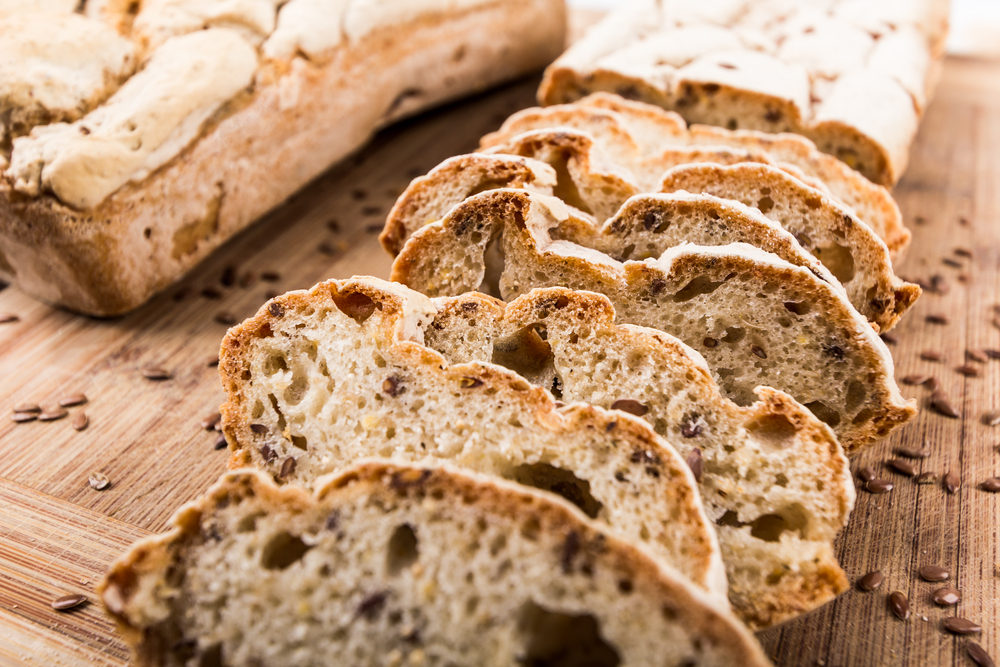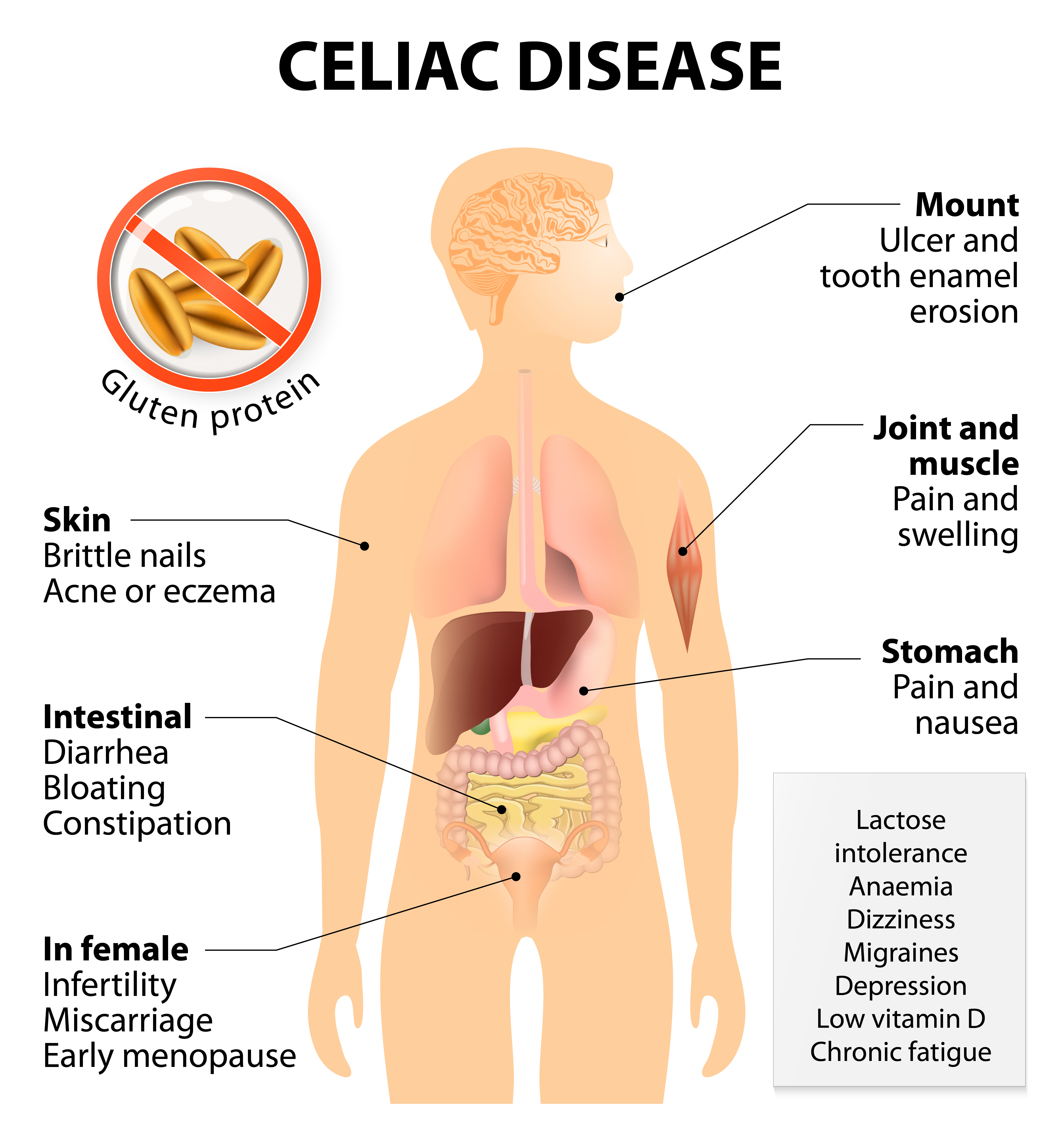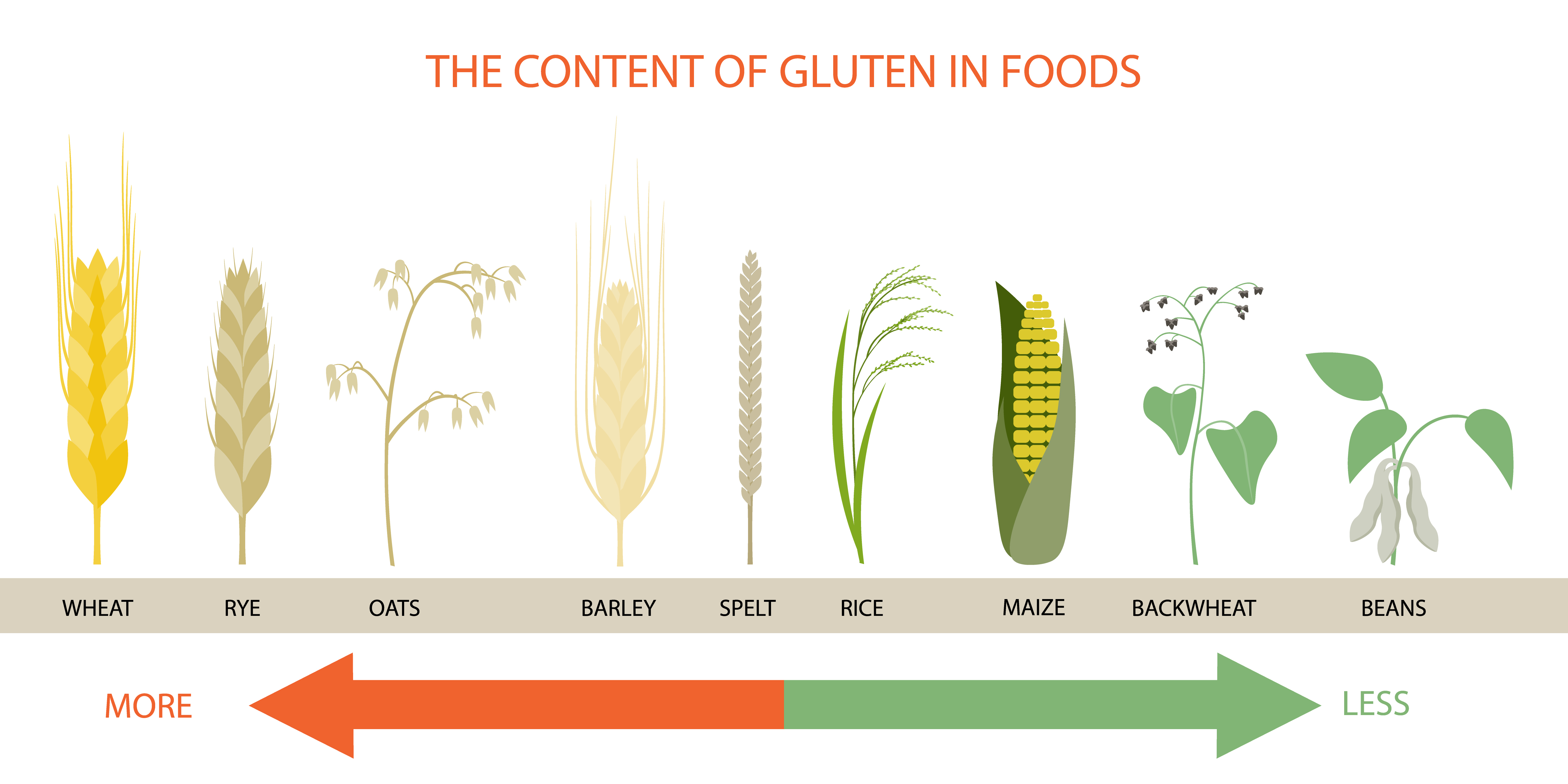
The Goss on Gluten
Posted on March 15, 2016 under celiac, Celiac disease, cooking, gf, gluten, gluten free, gluten sensitive, gluten-free, gluten-sensiitivity, lifestyle, massel, Massel bouillon and seasoning, wheat
Unless you have taken a three-year break from social media (if so, we’re jealous), you’ve likely seen someone post a picture of their food with the hashtag #glutenfree. While eating gluten-free has become a trend, celiac disease is much more complicated than that. In reality, celiac is a chronic immune reaction and digestive disorder, not a fad.
What is Gluten?
Gluten is the fragment of protein in wheat, rye and barley. It’s the compound that gives elasticity to dough and gives bread a chewy texture.

Gluten Sensitivity vs. Celiac
You might be thinking, what’s the difference? Aren’t both gluten-free? Well, while both disorders might have similar symptoms, they differ and require different lifestyles and treatment. Here’s a quick rundown between the two:
Gluten-Sensitivity: A condition that is similar to celiac but is not an autoimmune disorder nor does it have a genetic component. Essentially what this means is that when someone who is gluten sensitive eats gluten, they might have symptoms but it will not cause damage to their small intestine, unlike celiac. Symptoms consist of diarrhea, bloating, abdominal pain, brain fog, neurological disorders, fatigue and joint pain. Unlike celiac, there is no diagnostic test for gluten-sensitivity. If you have symptoms, but are not diagnosed with celiac or a wheat allergy, your gastroenterologist will most likely diagnose you as gluten sensitive. Treatment for this condition consists of trying to have a wheat-free/gluten-free diet.
Celiac: A genetic, autoimmune disorder. When gluten is ingested it triggers damage to the small intestine. It is one of the most common autoimmune conditions as it affects roughly 1 in 133 people. Celiac disease symptoms consist of diarrhea, bloating, abdominal pain, weight loss, malnutrition, iron deficiency, bone loss, skin issues, liver dysfunction, hair loss and more. Treatment for celiac disease is a strict gluten-free lifestyle. Celiac is a genetic disposition, meaning it is passed down through genes. External triggers that cause the immune system to respond inappropriately can also cause the disease.

How to Manage a Gluten-Free Lifestyle
While any lifestyle change can be stressful and confusing, following a gluten-free diet can be simple if done right! For a more in-depth look at what you should, probably shouldn’t, and definitely shouldn’t be eating as someone who is gluten-free, take a look at Gluten-Free Living’s Basic Diet Guide for Celiacs.
Our tips to help you make the most out of your gluten-free lifestyle:
- First, look at foods that are naturally gluten-free. There is plenty of delicious, soul-warming food out there that doesn’t contain gluten. From sweet potatoes to rib-eye steaks, mangos to mashed potatoes, smoked salted caramel ice cream to pho, the list goes on and on. Trust us when we say there are still wonderful meals out there that taste good and are good for you. So much of the food you probably always loved is naturally gluten-free, so focus on that first and then check out the packaged “gluten-free” alternatives.
- Get into the groove of cooking. If you’re already used to cooking, this will be a breeze for you. If not, here’s the chance for you to work on your skills. Dealing with friends and restaurants cooking for you can be challenging when it comes to cross-contamination, but don’t worry, eventually you’ll know exactly what guidelines to give friends and waiters when they ask what you would like to eat. Until then, cooking for yourself is the best option. For delicious gluten-free recipes, check out our recipes that we’re always updating.

- Be cautious of “gluten-free” alternatives. It’s essential to read all the details in the label before consuming something you think is made without gluten. Many commercial products are labeled as gluten-free but in reality, are not. When an item is labeled “wheat-free,” remember that does not mean it is made without gluten. While “gluten-free” products might be all the rage for people who are choosing to cut gluten out of their diet, when it comes to people who are celiac/gluten sensitive, always check to make sure it isn’t from a factory that could have contaminated the product with gluten.
- Find a community. Whether it’s with the bloggers we feature here at Massel, fellow gluten-free friends or understanding family members, supportive people can help you get acclimated to your new lifestyle.
While getting accustomed to being gluten-free might take some getting used to, we hope that with our products, suggestions and recipes, it’ll make being gluten-free a little bit tastier.


